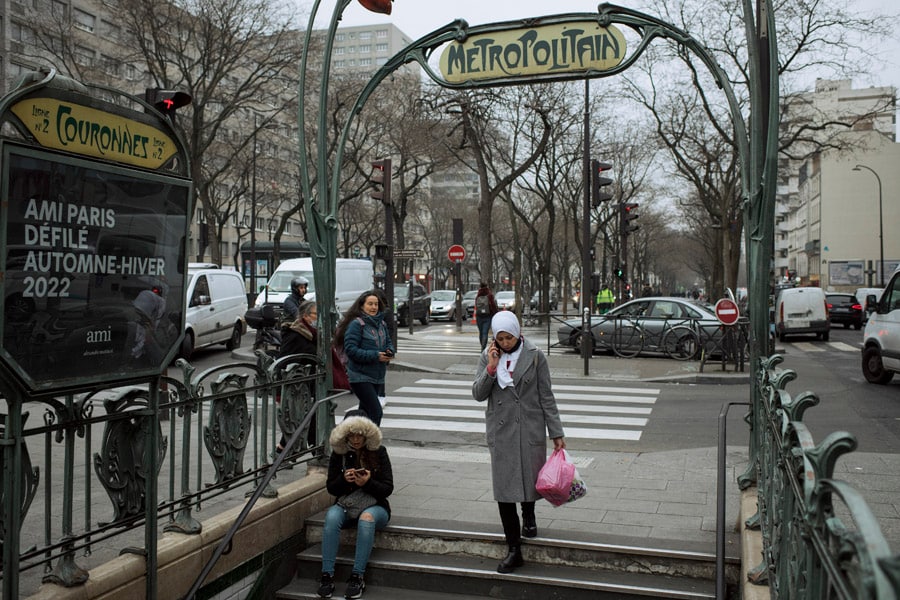
The quiet flight of Muslims from France
Before elections in April, President Emmanuel Macron's top three rivals are all running anti-immigrant campaigns that fan fears of a nation facing a civilisational threat by invading non-Europeans
 The Couronnes metro station in a neighborhood known for a big Muslim community, in Paris, Jan. 25, 2022. All the talk of France’s presidential election campaign is about immigration, but it is the quiet flight of French Muslims from France that points to a deeper crisis for the country. (Dmitry Kostyukov/The New York Times)
The Couronnes metro station in a neighborhood known for a big Muslim community, in Paris, Jan. 25, 2022. All the talk of France’s presidential election campaign is about immigration, but it is the quiet flight of French Muslims from France that points to a deeper crisis for the country. (Dmitry Kostyukov/The New York Times)
PARIS — France’s wounded psyche is the invisible character in every one of Sabri Louatah’s novels and the hit television series he wrote. He speaks of his “sensual, physical, visceral love” for the French language and of his attachment to his hometown in southeastern France, bathed in its distinctive light. He closely monitors the campaign for the upcoming presidential elections.
But Louatah does all that from Philadelphia, the city that he began considering home after the 2015 attacks in France by Islamic extremists, which killed scores of people and deeply traumatized the country. As sentiments hardened against all French Muslims, he no longer felt safe there. One day, he was spat on and called “dirty Arab.”
“It’s really the 2015 attacks that made me leave because I understood they were not going to forgive us,” said Louatah, 38, the grandson of Muslim immigrants from Algeria. “When you live in a big Democratic city on the East Coast, you’re more at peace than in Paris, where you’re deep in the cauldron.”
Before elections in April, President Emmanuel Macron’s top three rivals — who are expected to account for nearly 50% of the vote, according to polls — are all running anti-immigrant campaigns that fan fears of a nation facing a civilizational threat by invading non-Europeans. The issue is top of their agenda, even though France’s actual immigration lags behind that of most other European countries.
The problem barely discussed is emigration. For years, France has lost highly educated professionals seeking greater dynamism and opportunity elsewhere. But among them, according to academic researchers, is a growing number of French Muslims who say that discrimination was a strong push factor and that they felt compelled to leave by a glass ceiling of prejudice, nagging questions about their security and a feeling of not belonging.
©2019 New York Times News Service







